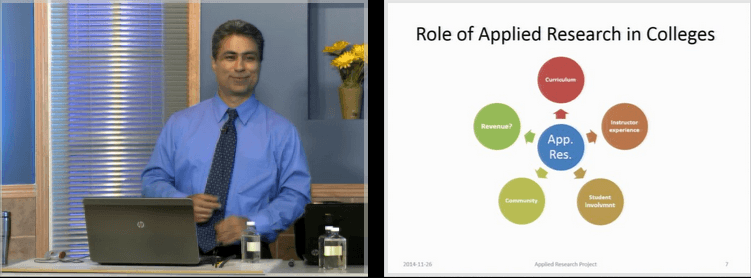Red River College unveils Manitoba’s first rapid charger for electric vehicles
Red River College is giving Manitoba electric vehicle (EV) owners a boost with its recently installed and operational Level 3 (30KW DC) quick charging station, the first of its kind in the province and one of about two dozen across Canada.
Drivers of Level 3 compliant EVs, including Nissan Leafs, Mitsubishi i-MiEVs, and Teslas, can now drop by the College’s Notre Dame Campus to charge up while contributing to research on the charger’s performance in Manitoba’s climate.
“With the installation of this new charger, we continue to play a leading role in Manitoba’s green transportation future,” said David Rew, RRC interim president and CEO. “This rapid charging station is another key element in our Mobility from Green Energy Initiative and a logical next step in our vehicle technology research program.”
Level 3 stations can charge an EV to at least an 80 percent charge in 15 to 30 minutes; this is compared to a 220/240V Level 2 charger, which can take 4 to 6 hours to get to full charge, or an 110/120V Level 1 charger (like those found around your house), which can take about 24 hours.
“There are currently no other rapid charging stations of this level in a climate as diverse as Winnipeg’s,” said Ray Hoemsen, director of Applied Research & Commercialization at Red River College. “The effect on both the Lithium ion battery and vehicle performance when utilizing rapid charging in extreme winter weather is still unknown.”
The new charging station will be handy for compliant EV owners – especially those traveling from out of town – who need a quick boost to make it to their next destination.
“EV owners who live more than an hour’s drive from Winnipeg will now be able to use their EVs to commute to the city,” said Robert Elms, president of the Manitoba Electric Vehicle Association. “This is a major step forward in the establishment of EV charging infrastructure in Manitoba.”
Red River College is sharing the charging station with whoever is able to use it, so long as they register and agree to participate in its study when called upon.
Funding for the charger was provided by the Natural Sciences and Engineering Research Council of Canada; it will be used as part of the College’s ongoing EV research, testing, and demonstration projects at its Electric Vehicle Technology & Education Centre (EVTEC).
See related Media coverage:



 Manitoba’s academic researchers are producing world-class innovations and discoveries, but their ideas are often lost in translation when it comes to pitching to potential business partners.
Manitoba’s academic researchers are producing world-class innovations and discoveries, but their ideas are often lost in translation when it comes to pitching to potential business partners.





